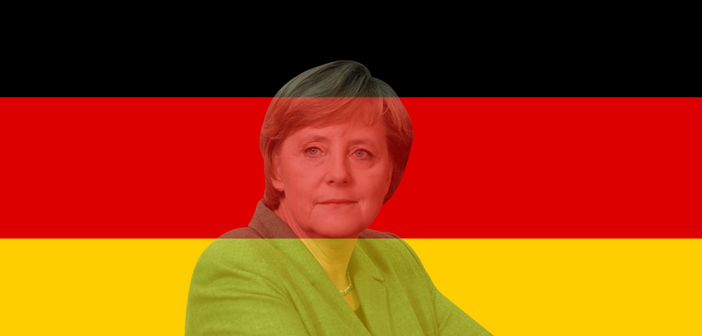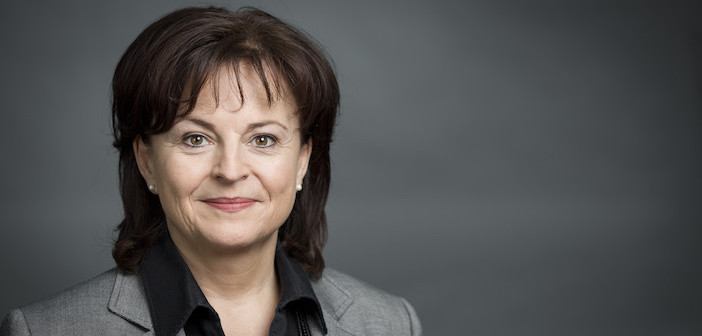This month, the German Federal elections will be held to decide who will be chancellor and form the country’s government moving forward. With six options and a myriad of opinions on the plant’s value, the future of cannabis in Germany can take many shapes.
Both German Chancellor Angela Merkel and lead challenger Social Democrat Martin Schulz have expressed a lack of interest in making significant changes to current policy, but the smaller parties may be critical in pushing cannabis policy forward as part of a coalition.
In a recent interview with the Neue Osnabrücker Zeitung, German Chancellor Angela Merkel said there are no plans in place to expand current policies that allow limited applications of medical cannabis in the country.
“I do not think of it,” Merkel said. “We allow a very limited medical application, and I do not intend to make any changes.”
In 2011, the Federal Government launched a “citizens’ dialogue” on YouTube where cannabis quickly became the most popular topic of discussion. The following year, Merkel welcomed the founder of the German Hemp Association (DHV), Georg Wurth, to her Berlin office and listened to four and a half minutes of his concerns.
Shortly thereafter, DHV-founder Georg Wurth won the “The Millionaires Election,” a primetime TV show in which one million Euros is awarded to the best concept for social progress by online vote. Germany’s most famous YouTuber, Le Floyd, was commissioned by the show’s audience to question Chancellor Merkel on the legalization of cannabis.
Although her opinion on cannabis has not changed over the years, the German chancellor can’t avoid the fact that cannabis policy reform is far more popular among voters today than in all former election campaigns.
Six political parties = numerous options
Four weeks ago, Schulz gave an equally clear rejection of any plans to the further liberalization of cannabis legislation. Surprisingly, Schulz appeared to have changed his mind Tuesday during a live-Interview on YouTube. Rather than the outright opposition of legalization, he now calls for a non-binding vote in Parliament.
During a non-binding vote, members of Parliament vote independently of their fractions and party’s official position. Rather, they vote their conscience.
In Germany, calling for a non-binding vote in Parliament is a political movement known as the “repeal of the fractional force” and used very rarely. Merkel used the repeal to enable Parliament to vote for the legal equality of same-sex marriage after the resistance in her own fraction was too strong.
Each of the three smaller parties playing a role in the formation of the new government — the Free Democrats, Greens, and Lefts — has anchored the regulation of cannabis to their party platforms.
If current election polls are an indicator, Merkel could lead Germany with the legalization proponents of the Free Democratic Party (FDP) or the Greens. If Schulz were to become Germany’s next chancellor, he would be dependent on the Greens and the Lefts, both of which stand for pro-cannabis politics.
Another decisive factor in the coming election will be the performance of the right-wing populist “Alternative for Germany” (AfD). The Party, which advocates a fundamental tightening up of drug laws, will not play any role in the formation of the government, but could win enough votes to break the 5% barrier required to join the Bundestag. With the addition of a sixth party in the Parliament, the majority ratios would swirl vigorously.
Merkel is no hardliner
In recent years, Merkel has proved repeatedly that she can make surprising moves, as long as she benefits politically in the long run; she has previously undercut several traditionally conservative positions:
To the horror of many fellow party members, the nuclear physicist Merkel declared Germany’s withdrawal from nuclear energy on the occasion of the Fukushima disaster in 2011. In 2015, despite the global trend, Merkel welcomed almost 2 million refugees from Syria and Iraq, dividing her party and jeopardizing her position in office. In 2017, the Merkel enabled the Parliament to vote for the legal equality of same-sex marriage.
The German chancellor does not depend on dogmas, provided their abolition is politically useful to her.
The best and most likely champion for a liberalization of cannabis policy, despite Merkel, would be a coalition of the Christian Democratic Union (CDU), FDP, and the Greens. The smaller parties may push their coalition partner to take further steps toward a truly comprehensive decriminalization. Realistically, this would mean aligning the tolerated small quantity of 15 or 30 grams* as well as a liberalization of the most stringent DUI regulation in the EU.
The worst possible option for Germany cannabis enthusiasts would be a continuation of the currently governing coalition of the CDU and the SPD, which would probably not change the status quo. Challenger Schulz would likely also form a coalition with the pro-cannabis parties of the Greens and the Lefts, but according to all polls and the loss of Sunday’s televised debate, the former president of the EU Parliament is hopelessly behind Merkel.
Even if it remains incalculable in the recreational sector, any future government will likely promote the cultivation and distribution of medical cannabis from Germany to support the ever-growing number of cannabis patients anticipated in 2019.
*In Germany, each state maintains separate regulations; tolerated quantities of cannabis or hashish range from 2-15 grams.
credit:marijuana.com



